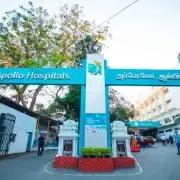Contacting Indian Hospitals From Bangladesh
In This Article
Contacting Indian Hospitals From Bangladesh
Updated on October 08, 2024
Medically verified by Dr. Arya
Fact checked by Dr. Fazeela

Medical Travel
10 minutes
When facing a health concern, finding the best possible care becomes a priority, and for many in Bangladesh, Indian hospitals are a preferred choice.
Renowned for their advanced medical technology, skilled professionals, and comprehensive care, Indian hospitals are increasingly attracting patients from Bangladesh.
However, navigating the process of contacting and arranging treatment at these hospitals can be complex.
In this blog, Karetrip will help you understand the steps involved and provide you with useful tips on how to effectively contact Indian hospitals from Bangladesh.
Understanding the Need for Medical Treatment in India
India has become a leading destination for medical tourism due to its world-class healthcare facilities, specialised treatments, and affordable costs. Many Bangladeshis seek treatment in India for various reasons, including:
- Advanced Medical Technology: Indian hospitals are equipped with the latest medical technology, offering cutting-edge treatments and procedures.
- Skilled Healthcare Professionals: Indian doctors are often internationally trained and have extensive experience in their fields
- Affordable Treatment: Despite the high quality of care, the cost of treatment in India is often lower than in many Western countries.
- Ease of Access: India is geographically close to Bangladesh, making it a convenient option for patients.
- Specialized Care: Indian hospitals offer specialised care in areas such as oncology, cardiology, neurology, and orthopaedics.
Identifying the Right Hospital
Before contacting a hospital, it's important to identify the right one for your specific medical needs. Here are some steps to help you choose:
- Research Specialisations: Different hospitals in India specialise in different areas of medicine. For example, the Apollo Hospitals are known for cardiology and oncology, while the Fortis Hospitals excel in neurology and orthopaedics.
- Check Hospital Accreditation: Look for hospitals accredited by recognized bodies such as the Joint Commission International (JCI) or the National Accreditation Board for Hospitals & Healthcare Providers (NABH).
- Read Patient Reviews: Patient testimonials and reviews can provide insights into the quality of care and the patient experience at a particular hospital.
- Consult Your Doctor: Discuss your condition with your local doctor in Bangladesh and ask for recommendations on which Indian hospital might be best suited for your treatment.
How to Contact Indian Hospitals
Once you have identified the right hospital, the next step is to contact them. There are several ways to do this:
- Hospital Websites: Most Indian hospitals have official websites where you can find contact information, including phone numbers and email addresses. Many websites also have online inquiry forms where you can submit your medical details and request an appointment.
- Medical Tourism Companies: These companies act as intermediaries between patients and hospitals. They can help you with hospital selection, appointment scheduling, visa arrangements, and even travel and accommodation.
- Direct Phone Calls: You can call the hospital directly using the contact numbers provided on their website. Be prepared to provide details about your medical condition and the type of treatment you are seeking.
- Email Communication: You can also contact the hospital via email. When emailing, be sure to include your medical history, current condition, and any specific questions you have about the treatment process.
- Social Media: Some hospitals have active social media profiles on platforms like Facebook, Twitter, or LinkedIn. You can send them a direct message or use their social media contact information to reach out.
Providing Medical Documentation
When contacting a hospital, it is important to provide comprehensive medical documentation. This helps the hospital understand your condition and plan your treatment accordingly. Here’s what you should include:
- Medical History: A detailed report of your medical history, including any previous treatments, surgeries, or ongoing medications.
- Diagnosis Reports: Recent diagnostic reports such as X-rays, MRIs, blood tests, and other relevant medical tests.
- Doctor’s Notes: A referral or recommendation letter from your local doctor in Bangladesh, summarising your condition and the treatment required.
- List of Medications: A list of all the medications you are currently taking, along with dosages.
 10 min Read
10 min ReadBooking Budget Friendly Accommodation Near Apollo Hospital, Greams Road
 10 min read
10 min readWhere can I exchange Bangladeshi Taka To Indian Rupees?
 10 min read
10 min readUnique Bangalore: Unusual & Intriguing Places to Explore While Staying In The City For Treatment
Get a Callback Now
Understanding the Costs
Understanding the cost of treatment is crucial when planning medical care in a foreign country. Indian hospitals are known for their affordability, but it’s important to get a clear estimate before proceeding. Here’s how you can manage this:
- Request a Cost Estimate: When contacting the hospital, ask for a detailed cost estimate. This should include the cost of the treatment, hospital stay, doctor’s fees, and any additional expenses such as diagnostic tests or post-operative care.
- Compare Costs: If you have contacted multiple hospitals, compare the cost estimates to see which one offers the best value for money.
- Understand the Payment Process: Inquire about the payment methods accepted by the hospital (e.g., credit card, bank transfer) and any financial assistance options available.
Visa and Travel Arrangements
Travelling to India for medical treatment requires proper planning, especially when it comes to visa and travel arrangements:
- Medical Visa: Patients travelling from Bangladesh to India for medical treatment need to apply for a medical visa. You can apply online through the Indian Visa Application Center in Bangladesh or visit the Indian High Commission.
- Travel Arrangements: Once your visa is approved, book your flight and make accommodation arrangements. Many hospitals offer assistance with travel and accommodation, so inquire if this service is available.
- Companion Visa: If you plan to travel with a companion, they will need to apply for a medical attendant visa, which is usually issued alongside the patient’s medical visa.
Pre-Travel Preparation
Before travelling to India, make sure you are fully prepared:
- Confirm Appointment: Ensure that your appointment with the hospital is confirmed and that you have all necessary contact details.
- Pack Essential Documents: Carry all your medical documents, passport, visa, and travel tickets. It’s also a good idea to have multiple copies of these documents.
- Health Insurance: If you have international health insurance, check if it covers treatment in India. If not, you may want to consider purchasing travel insurance that includes medical coverage.
- Plan Your Stay: Depending on your treatment, you may need to stay in India for an extended period. Plan your accommodation accordingly, and consider staying near the hospital for convenience.
Arrival and Hospital Admission
Once you arrive in India, here’s what to expect:
- Airport Pickup: Some hospitals offer airport pickup services for international patients. Check with the hospital beforehand to see if this is available.
- Hospital Admission: Upon arrival at the hospital, you will be admitted for pre-treatment evaluation. This may include additional diagnostic tests and consultations with specialists.
- Pre-Procedure Preparation: Depending on your treatment, you may need to undergo specific preparations, such as fasting before surgery.
During Treatment
During your treatment, communication is key:
- Stay in Contact: Keep in touch with your family in Bangladesh and update them regularly on your condition.
- Understand Your Treatment Plan: Make sure you fully understand your treatment plan, including the procedure, expected outcomes, and any potential risks.
- Post-Treatment Care: Discuss post-treatment care with your doctor, including any follow-up appointments or medications you may need.
Post-Treatment and Returning Home
After your treatment is complete:
- Follow-Up Appointments: Some treatments may require follow-up visits. Discuss this with your doctor and plan accordingly.
- Collect Medical Reports: Before leaving the hospital, ensure that you have all your medical reports and a discharge summary.
- Plan Your Return: Once you are medically cleared to travel, make arrangements for your return to Bangladesh.
- Continued Care: Once back in Bangladesh, continue any prescribed treatments or follow-ups as advised by your Indian doctor.
Contacting Indian hospitals from Bangladesh can be a smooth process if you are well-prepared and informed.
By following the steps outlined in this guide, you can ensure that you receive the best possible care in India, from choosing the right hospital to managing your treatment and returning home safely.
Research and Choose the Right Hospital: Identify hospitals that specialise in your required treatment and check for accreditation.
Contacting the Hospital: Use multiple channels such as websites, phone calls, and emails to reach the hospital.
Provide Detailed Medical Documentation: Ensure the hospital has all necessary medical records to assess your condition.
Understand Treatment Costs: Request a detailed cost estimate and compare options before making a decision.
Visa and Travel Arrangements: Apply for a medical visa and make travel arrangements well in advance.
Pre-Travel Preparation: Confirm your appointment, pack essential documents, and check your health insurance coverage.
Hospital Admission and Treatment: Expect an initial evaluation upon admission and follow the treatment plan.
Post-Treatment Care: Follow your doctor’s advice for post-treatment care and plan for any necessary follow-up visits.
Returning Home: Once treatment is complete, ensure you have all medical reports and plan your return to Bangladesh.
Stay Informed and Communicate: Maintain communication with your family and ensure you fully understand your treatment process.
Source Links
Joint Commission International
India Visa Online
Fortis Healthcare
Apollo Hospitals

